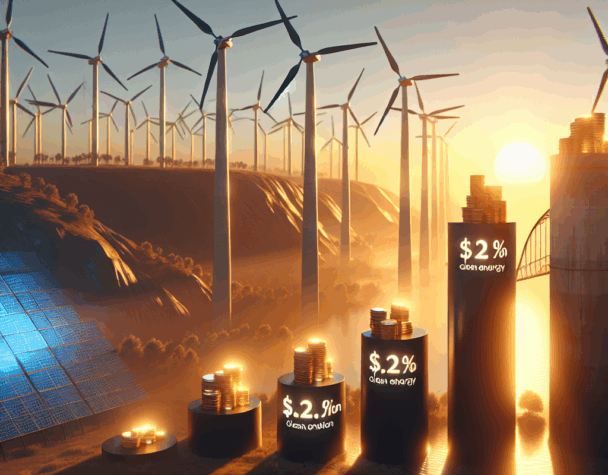
Global Clean Energy Investments Surge to $2.2 Trillion, Doubling Fossil Fuel Spending
Mon, June 09, 2025Global Clean Energy Investments Surge to $2.2 Trillion, Doubling Fossil Fuel Spending
In a significant shift towards sustainable energy, global investments in clean energy technologies are projected to reach $2.2 trillion in 2025, effectively doubling the $1.1 trillion allocated to fossil fuels. This trend underscores a growing commitment to renewable energy sources and a move away from traditional coal, gas, and oil investments.
Key Highlights from the International Energy Agency (IEA) Report
- Renewable Energy Dominance: The $2.2 trillion investment encompasses renewables, grid technologies, storage solutions, and nuclear energy, marking a substantial lead over fossil fuel investments.
- Electricity Sector Growth: Investments in the electricity sector are set to reach $1.5 trillion, surpassing the combined spending on oil, natural gas, and coal by 50%.
- Regional Insights: China has significantly increased its share of global clean energy investments, rising from 25% to 33% over the past decade. However, the country also approved nearly 100 gigawatts of new coal-fired power plants last year, highlighting a complex energy landscape.
- Data Center Demand: The expanding energy needs of data centers are projected to require over $170 billion in new power generation investments, influencing both clean and fossil fuel sectors.
Despite the surge in clean energy investments, global demand for coal, oil, and gas continues to rise, driven by growth in countries like China and India. This indicates that while the investment landscape is shifting, the transition to a fully renewable energy grid remains a complex and ongoing process.
For a more detailed analysis, refer to the original report by the International Energy Agency.
As the world grapples with climate change and seeks sustainable solutions, the substantial increase in clean energy investments offers a promising path forward. However, balancing this growth with the persistent demand for fossil fuels presents a challenge that policymakers and investors must navigate carefully.

